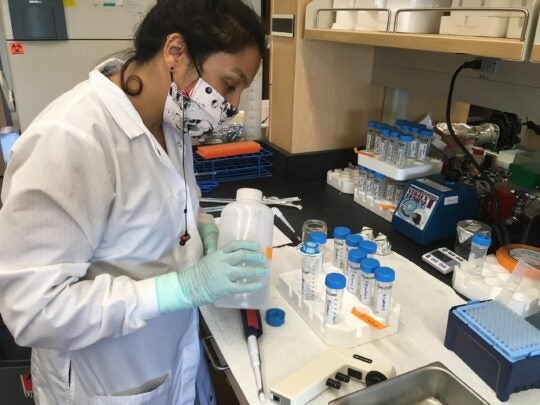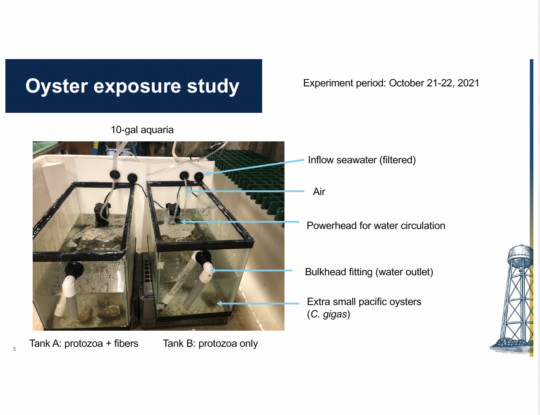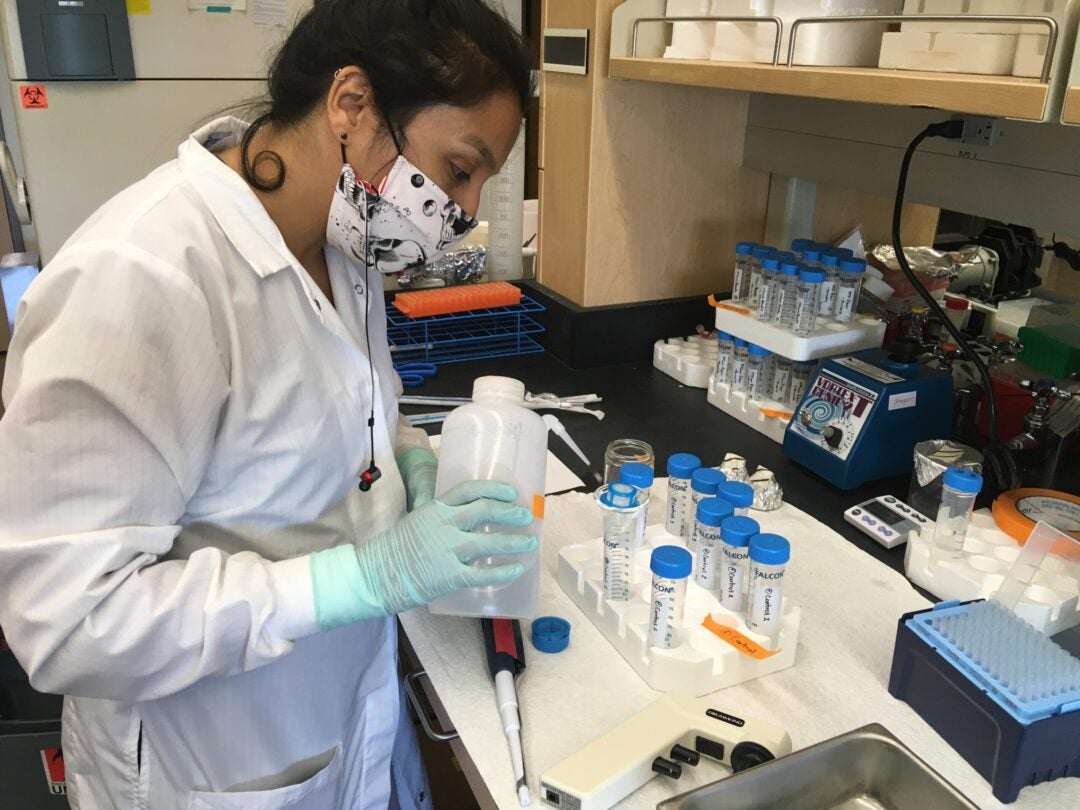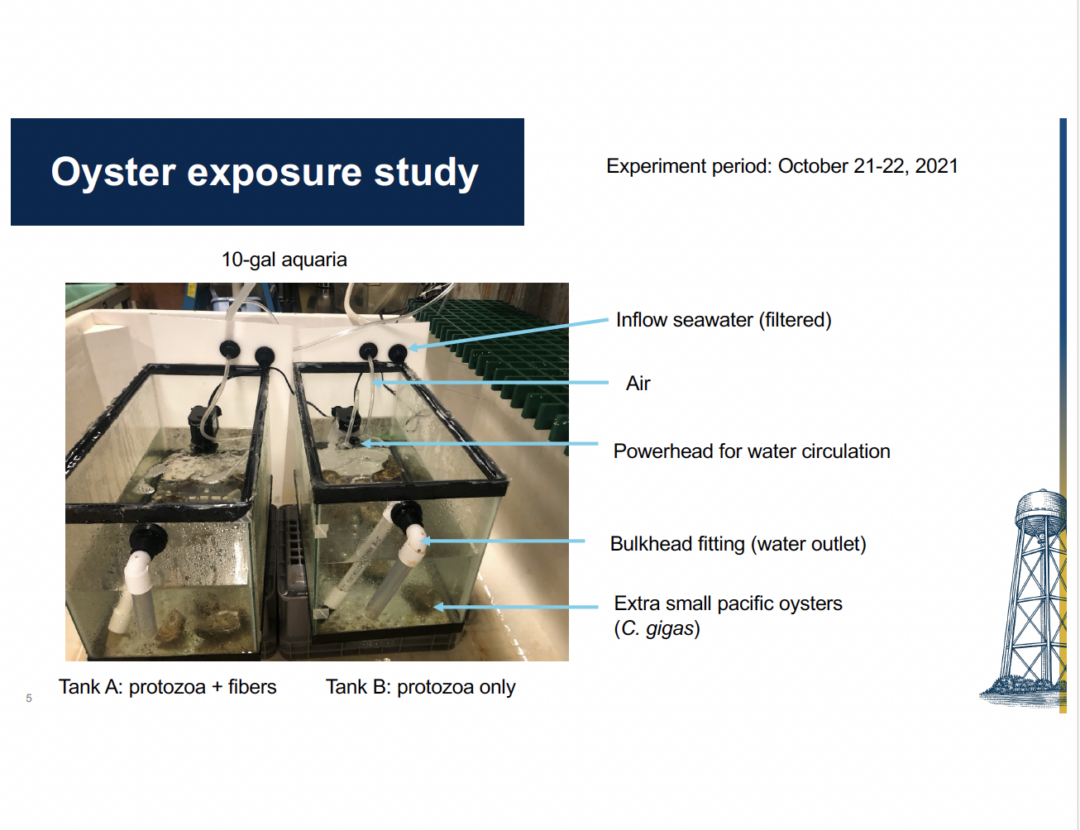Interaction between microplastics and pathogen pollutants in marine ecosystems; Implications for Seafood Safety
We currently understand very little about the health effects of microplastic pollutants on animal and human health. One area that is virtually unexplored and needs more research is whether microplastics can adsorb harmful pathogens from surrounding seawater and how microplastics may serve as vectors for pathogens in the marine environment. USC Sea Grant funded a study to tackle this data gap by investigating the impact of microplastics on oysters via the effects on transport, persistence, and fate of zoonotic pathogens recognized by the World Health Organization as underestimated causes of illness from shellfish consumption.
Key Results:
- Pathogens are capable of associating with microplastics in contaminated seawater, with more parasites adhering to plastic microfiber surfaces as compared with plastic microbeads
- This study demonstrates a novel pathway by which anthropogenic pollutants may be mediating pathogen transmission in the marine environment, with important ramifications for wildlife and human health
Project Impacts & Application:
- Presentations at a 2022 UC Davis Food Science and Technology Graduate Seminar and undergraduate class and the 2022 American Association of Zoo Veterinarians Annual Conference
- Local news covers research
Principal Investigators:
- Karen Shapiro, Ph.D., University of California, Davis
- Chelsea Rochman, Ph.D., University of Toronto
Funding:
California Ocean Protection Council, 2018-2021
Additional Info:
- https://shapirolab.vetmed.ucdavis.edu/research
- Zhang, E., Kim, M., Rueda, L., Rochman, C., VanWormer, E., Moore, J. & Karen Shapiro. Association of zoonotic protozoan parasites with microplastics in seawater and implications for human and wildlife health. Sci Rep 12, 6532 (2022). https://doi.org/10.1038/s41598-022-10485-5
Access our Publications Database to view publications from this project or other related topics




